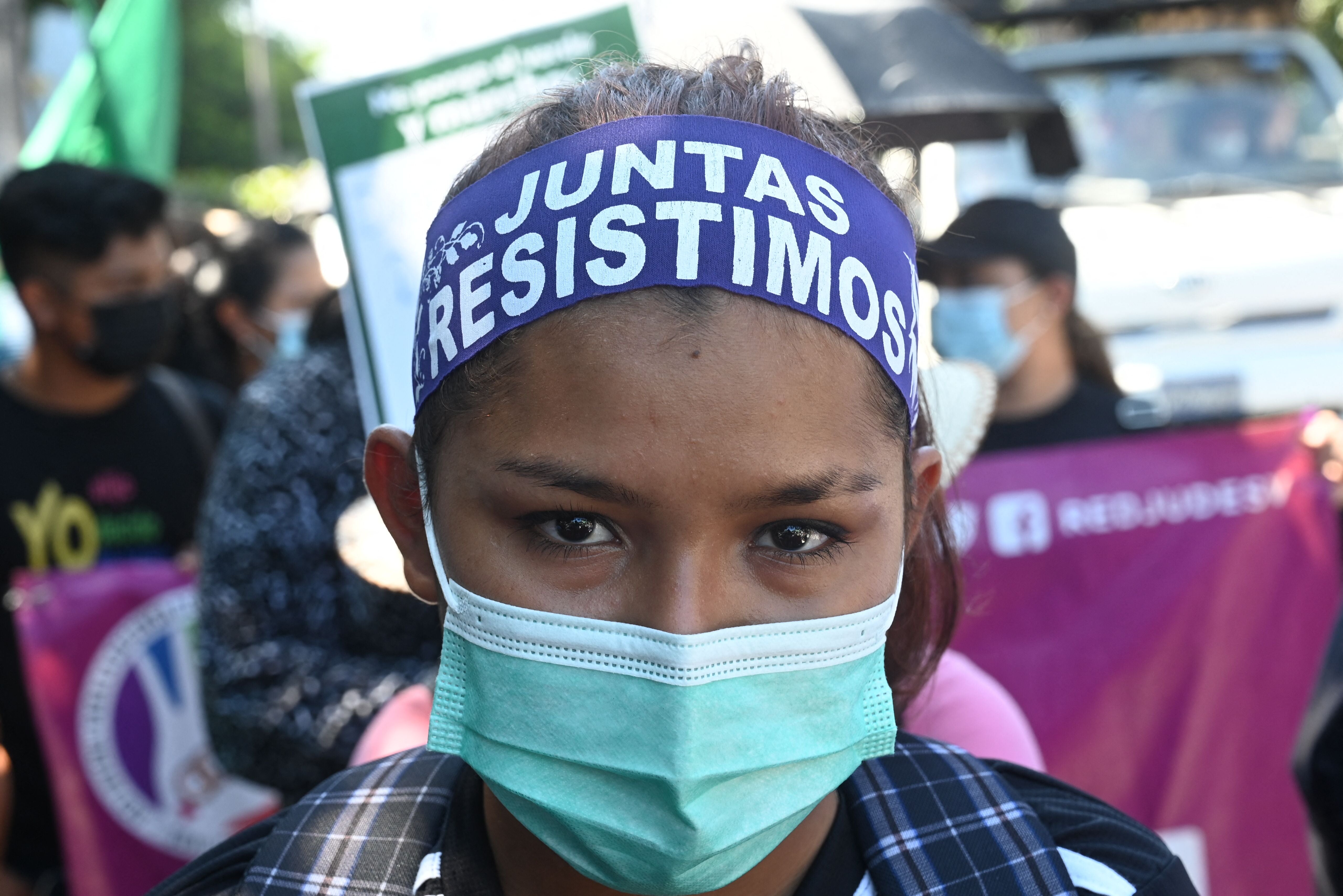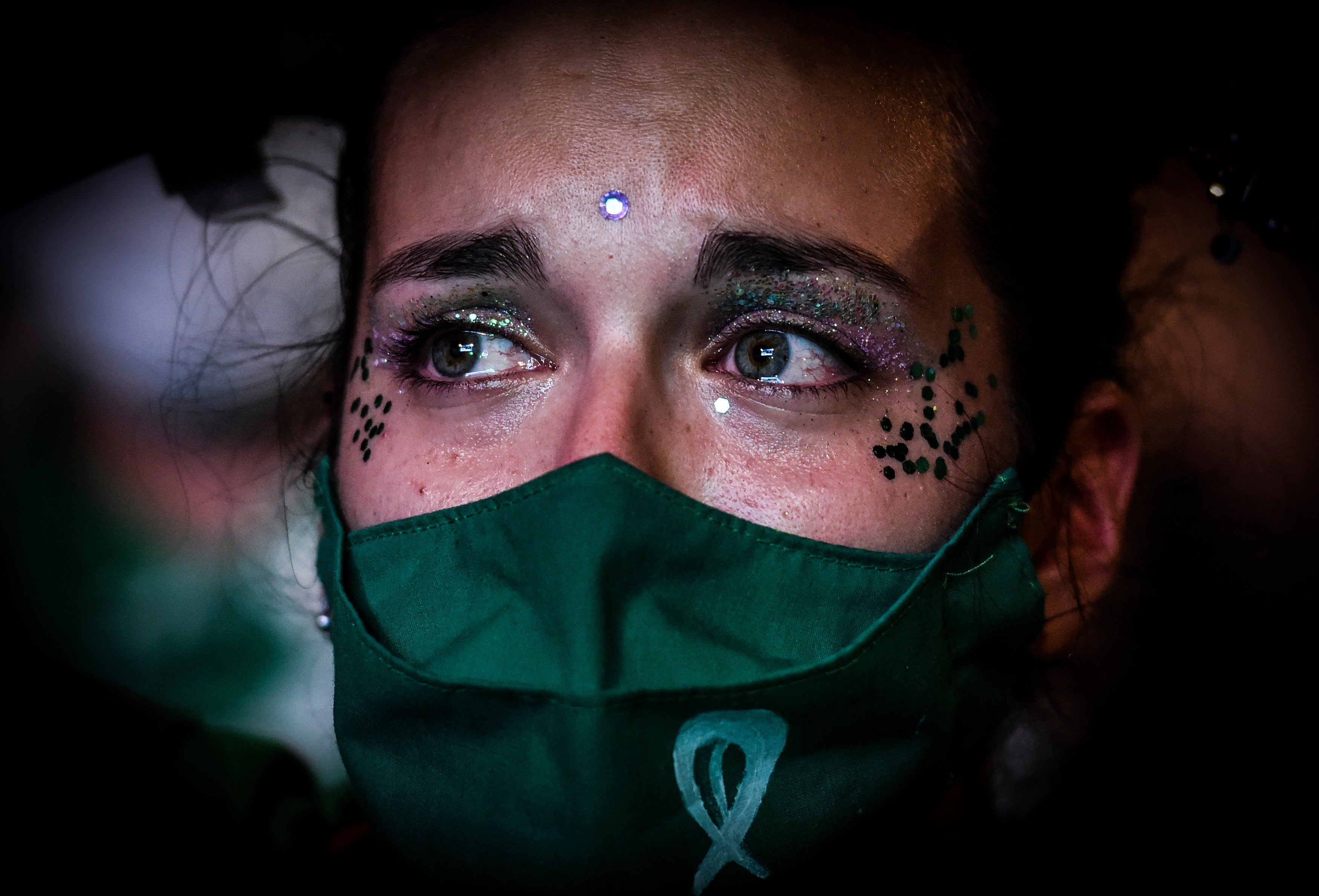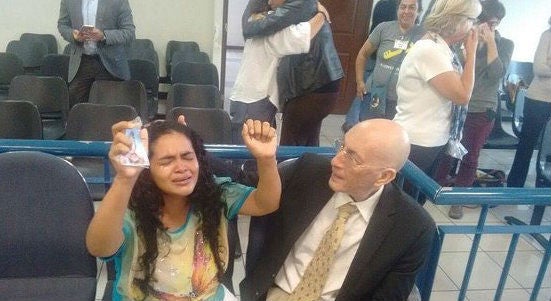‘Without Roe, parts of US will look like Central America’ say activists in nations where abortion is entirely illegal
Once a beacon for a region where abortion was banned, US now out of step with nations such as Argentina and Columbia, writes Andrew Buncombe

The United States — long a beacon to reproductive rights activists in Latin America — will now start to resemble those countries without Roe’s guarantee of a right to legally access abortion, say campaigners.
For activists in places such as El Salvador, where abortion is entirely banned, and Venezuela, where there exists on the statute an exception to save the life of a woman though in practice is equally criminal, the decades-long success of campaigners in the US was often an inspiration.
For women in Argentina, where “Green Wave” activists succeeded in their own landmark victory to secure legal abortion in late 2020, there was support from counterparts in the US, whose own victory dated back all the way to 1973.
But some of those activists now say parts of the US will come to resemble Central American nations when it comes to abortion laws. Women in the US, even in those states where it is now banned, will likely have greater access to help that their counterparts in countries such as Honduras.
Nevertheless, the activists say women in the US may now suffer injury and even death if they resort to trying to perform abortions at home, or else turn to clandestine and unsafe procedures.
“What is happening today with Roe v Wade, is worrying because what is going to happen in the United States, unfortunately, is that it will become Central America,” says Sara García Gross, an activist in El Salvador.
“The absolute criminalisation of abortion that we live with in our Central American countries is serious — it generates great obstacles to access reproductive justice.”
Speaking from San Salvador, García, of coordinator of political advocacy for the Citizen Group for the Decriminalisation of Therapeutic, Ethical, and Eugenic Abortion (CFDA), says the experience of women in her country suggests women in those parts of the United States where abortion is illegal will be very challenging.
“Those who face the worst consequences are young women,” she adds.
“They are women who live in poverty. They are rural women….What is going to happen in the United States is going to affect the bodies of women who are already vulnerable.”

El Salvador is among a handful of countries where abortion is entirely illegal, with no exceptions for even rape, intent or even the health of the mother.
Yet, it is perhaps singular in the aggressive way the state seeks to enforce the law. It is estimated that between 1998 and 2013, more than 600 women were jailed after being accused of having had an abortion.
One of them was Maria Teresa Rivera, who was jailed for 40 years in 2011 after she says she suffered a miscarriage, and found herself handcuffed to a hospital bed. She was eventually released after seeing four-and-a-half years in jail and now lives in Sweden.
In an interview with The Independent in 2016 she said she was delighted to be reunited with her son, Oscar.
“But I am fearful because not all of society agrees with what happened.”
Many of the states in the US — among them Arkansas and South Dakota, which will only now permit abortions to save a woman’s life — have made clear they intend to prosecute women, doctors and even providers of medication abortion drugs.
“The impact of criminalisation is very hard,” Garcia says of the experience in El Salvador. “It is very painful because women face stigmatisation. Women face violence. The presumption of innocence is denied. They are denied access to justice. And this stigatisation is also transferred to their communities, to their families.”
Prior to 1998, El Salvador permitted exceptions in which abortions were allowed in cases of rape, incest, or in which the health of the woman was threatened. Laws were changed under pressure from conservatives in the government and with the support of the powerful Catholic church.

Garcia says that abortions have not stopped, but rather been driven underground, where they are needlessly dangerous. Women with means, or education, can still obtain such procedures, or else get drugs to end abortions in their homes,
“Abortions are going to happen because it is part of women’s lives. It is an obstetric event that women face throughout history, and not just this generation,” she adds.
“What is going to happen is that it is going to happen in more insecure contexts, probably in contexts where women have to resort to methods where they do not have enough information. Women will probably have to travel to other states. There are probably women who have to continue their pregnancies, though the United Nations Committee Against Torture has already said that a forced pregnancy constitutes a form of torture.”
Giselle Carino, is an Argentinian political scientist who took part in the campaign for legal abortion in her country, now serves as the New York-based CEO of Fos Feminista, a feminist alliance of more than 170 organizations around the world.
She was part of the Marea Verde, or “green wave”, that helped secure the right to legal abortion in a similarly heavily Catholic nation in December 2020. She said it took several decades, and required a broad coalition.

She also says some women in the US will now likely be forced to risk their lives to obtain abortion. She says she is disappointed that the ruling by the Supreme Court puts the United States out of step with other parts of the Americas on reproductive rights — not only Argentina, but Mexico and Colombia have also made it legal for women to get abortions.
“We tend to see regression of rights, particularly of sexual and reproductive rights, as an indication of weakening of democratic institutions and processes,” the tells The Independent.
“So one cannot think of this regression in the US outside of that context. And one needs to wonder the impact the Trump administration had, not just on the years that he was ruling, but in this case for the many years to come for the next 20 years, for women and girls and others who have babies in the United States”.
Luisa Kislinger, an activist originally from Venezuela where abortion is in practice entirely illegal but where women resort to clandestine means, says women in those parts of the US are likely to still be able to access some help.
“In Venezuela, there is no discussion about this topic. No politician will come out and speak in support of it,” says, the former diplomat.
And she says the actions by the US Supreme Court will embolden those in Latin America seeking to further suppress women’s rights.
Garcia says she believes women in El Salvador will somehow want to offer their support to their sisters in the United States, however limited or symbolic it may be.
“We are alert, we are vigilant,” she says.” And we are also in solidarity with human rights organisations in the United States.”
Join our commenting forum
Join thought-provoking conversations, follow other Independent readers and see their replies
Comments
Bookmark popover
Removed from bookmarks